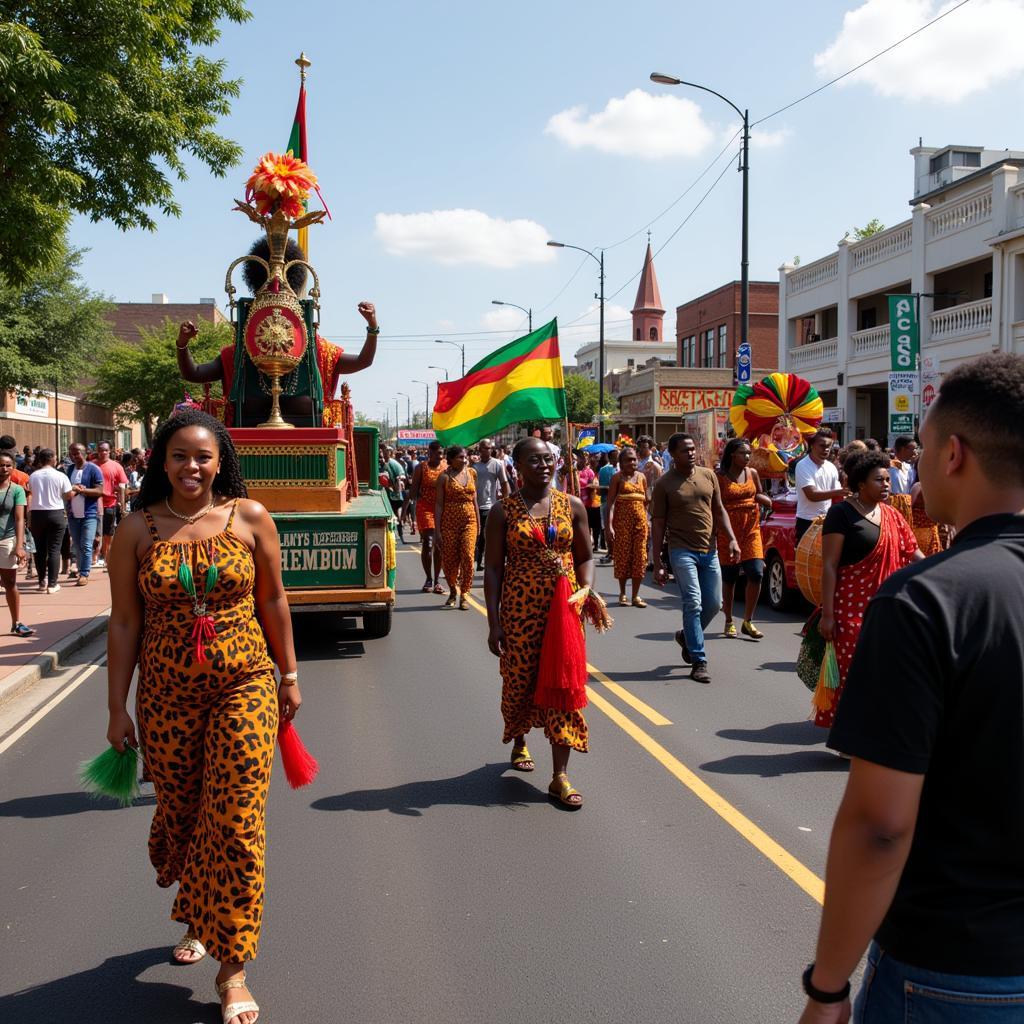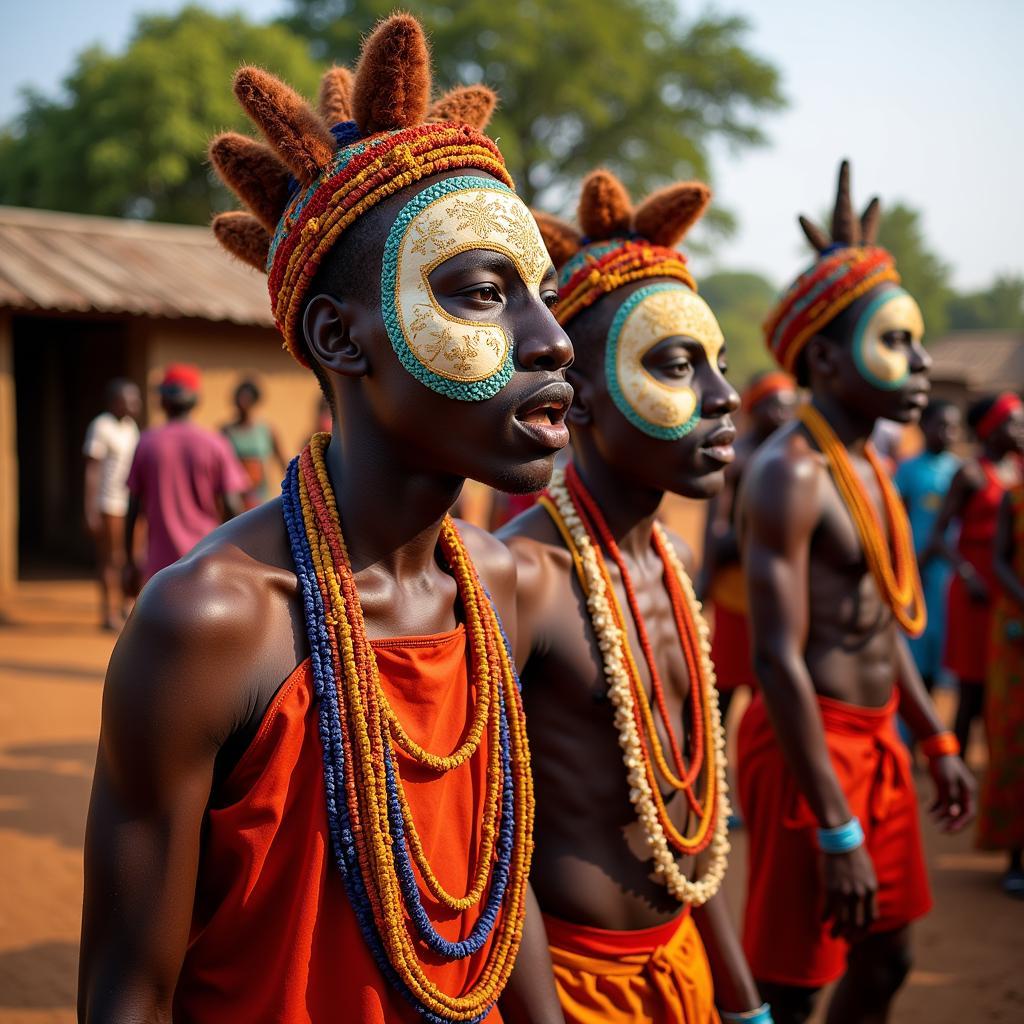Celebrating African Freedom Day: A Journey Through Liberation and Legacy
African Freedom Day, celebrated annually on May 25th, marks a pivotal moment in African history. It commemorates the founding of the Organisation of African Unity (OAU) in 1963, a landmark achievement in the struggle for liberation from colonial rule. This day signifies not just independence, but the ongoing pursuit of unity, peace, and progress across the diverse continent.
African Freedom Day is more than just a historical marker; it’s a living testament to the indomitable spirit of the African people. From the fight against apartheid in South Africa to the liberation movements in Algeria and beyond, the journey to freedom has been marked by resilience, courage, and a deep-seated yearning for self-determination. african in republic day images
The Significance of African Freedom Day in the 21st Century
African Freedom Day continues to hold profound significance in the 21st century. It serves as a reminder of the sacrifices made by generations past and inspires continued action towards a brighter future. This includes addressing the persistent challenges of poverty, inequality, and conflict, while also celebrating the continent’s rich cultural heritage and fostering sustainable development.
What does African Freedom Day Represent?
African Freedom Day represents the collective hope for a unified and prosperous Africa. It’s a day to reflect on the progress made, acknowledge the remaining challenges, and reaffirm the commitment to Pan-Africanism and the ideals of unity, solidarity, and self-reliance.
What is the history behind African Freedom Day? The roots of African Freedom Day lie in the Pan-Africanist movement, which emerged in the early 20th century. Leaders across the continent recognized the need for collective action to overcome colonial oppression and forge a shared destiny. This culminated in the formation of the OAU on May 25, 1963, marking a decisive step towards African liberation. The OAU later transitioned into the African Union (AU) in 2002, carrying forward the mantle of Pan-Africanism and working towards greater integration and development.
south african independence day
Celebrating African Culture and Heritage on Freedom Day
African Freedom Day is also an occasion to celebrate the continent’s vibrant tapestry of cultures and traditions. From music and dance to art and cuisine, Africa boasts a rich and diverse heritage that reflects the ingenuity and creativity of its people. The day is often marked by cultural performances, exhibitions, and community gatherings, showcasing the beauty and diversity of African traditions.
How can I learn more about African culture?
Exploring African literature, art, and music is an excellent way to gain a deeper understanding of the continent’s diverse cultural landscape. You can also visit museums, attend cultural events, and connect with African communities to learn more about their traditions and perspectives.
“African Freedom Day is not merely a celebration of the past but a call to action for the future,” says Dr. Abimbola Adebayo, a renowned historian of African liberation movements. “It reminds us of the ongoing struggle for true liberation – economic, social, and political – across the continent.”
 African Freedom Day Parade
African Freedom Day Parade
The spirit of African Freedom Day also extends to the African diaspora, connecting people of African descent across the globe in a shared celebration of heritage and identity. african american independence day images] This global connection underscores the enduring legacy of Pan-Africanism and the ongoing pursuit of justice and equality for all.
African Freedom Day: A Catalyst for Progress
African Freedom Day serves as a powerful catalyst for progress, encouraging reflection, dialogue, and action towards a more just and equitable future for Africa and its people. It’s a day to celebrate achievements, acknowledge challenges, and renew the commitment to building a united and prosperous Africa. aaron douglas african american modern artists]
“The struggle for freedom is an ongoing process,” states Professor Chimamanda Eze, a leading scholar on African politics. “African Freedom Day reminds us that we must continue to strive for a future where every African can enjoy the full benefits of liberty and self-determination.”
In conclusion, African Freedom Day on May 25th stands as a powerful symbol of the African people’s unwavering commitment to liberation and self-determination. It is a day to celebrate the victories of the past, address the challenges of the present, and work towards a future of unity, peace, and progress across the continent. african americans in world war 2]
Need support? Contact us at Phone Number: +255768904061, Email: kaka.mag@gmail.com or visit us at Mbarali DC Mawindi, Kangaga, Tanzania. We have a 24/7 customer service team.
